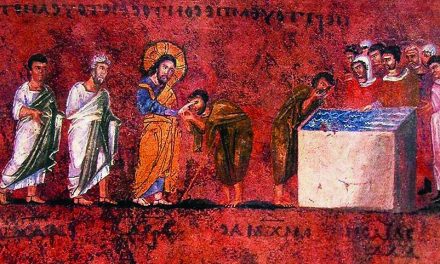- First Reading: Deuteronomy 18:15-20
- Psalm: 95: 1-2, 6-7, 7-9
- Second Reading: 1 Corinthians 7:32-35
- Gospel: Mark 1:21-28
Like so many people, life has been challenging. How do we navigate these challenges? In this week’s readings, I see guidance on what helps and warnings about what does not.
In the first reading, Moses promises that God will raise up a prophet like Moses for the people. With God, Moses led the people out of slavery in Egypt, forged a covenant relationship between God and the people, guided them through the wilderness, and brought them to a land flowing with milk and honey. Moses saw them through these difficult times, and as the reading from Deuteronomy reminds us, God will provide others who will do as Moses did. They will follow God and so care for people. What helps is trust in God and care for others.
The reading from Deuteronomy also warns against what will not help. It cautions against false prophets, people whose words are not God’s words and so will lead to death. In fact, the passage in Deuteronomy before the one in this week’s reading is also a warning against false prophets who would lead the people astray and so bring doom. What will not help us? Falsehoods, especially ones that offer salvation in exchange for the lives of others.
Paul has a similar warning in First Corinthians. He cautioned against those who are “anxious about the things of this world.” It is caution not against creation but against the values “the world” puts forward. It is a caution against a “survival of the fittest” or a “dog-eat-dog” mentality. Far from helping us out of difficulties, this perspective leads not just to our own false happiness but also to scapegoating. In fact, it often means that instead of addressing problems one casts the blame for their cause upon others. In being “anxious about the things of the world,” people blame others, foster enemies, and thereby make things worse.
Paul calls Christians to be “anxious about the things of God” as a way to help. This week’s psalm gives a sense of “the things of God.” It is thanksgiving, joy, and worship. Most of all it calls us not to harden our hearts. It is to have a heart of compassion, of mercy, and of courage. It is a heart open to God and the fullness of life. The way forward in complex times is a heart not made of stone but of flesh and blood. A heart that keeps us alive and moves us to keep others alive.
The gospel story of Jesus provides the final clue of what helps. The reading comes from the beginning of Mark’s gospel, where Jesus is rising in fame and exercising his power. He is not after these things for himself but because he is anxious about the things of God. The exorcism captures this perfectly. He is not trying to make a name for himself but is coming to undo evil in the world, the demonic powers that oppose God’s reign of life and love. Doing this, carrying out God’s will, is manifested in healing, in this case the healing of a possessed man. Instead of the way of “the world” where problems are avoided by casting blame, “the things of God” speak of addressing problems by doing what is right and exercising compassion for those suffering.
This seems to be the way forward. To negotiate the complexity and challenges of the world we face, we cannot take the way of the false prophets. We cannot offer false words and pretend they are from God. We cannot define ourselves in opposition to others. We might have to struggle and content with those who oppose what is good, just as Jesus told the demon “Quiet! Come out of him!” But the aim is the restoration of the person and community. The way to address the complexity is to cast out demons, heal, forgive. It is to seek justice and speak out for the vulnerable. It links our own fate to the fate of others, reminding us that our judgment dependent upon how we cared for others. True worship of God entails love of others.
This does not cause the challenges to go away, but it helps us address them. . First, it means that we take on the challenges out of a desire to make things better and help others. It gives our actions purpose and so helps us to do what needs to be done. Second, because the way forward entails helping others, facing challenges builds relationships, possible friendships, that then support and help us. Instead of facing challenges alone, one builds up a community to help each and all. If we do this, we become the kind of person that Moses said would arise. We become followers of Jesus. If we listen to God, we will care for each other. This would truly help in these challenging times.




